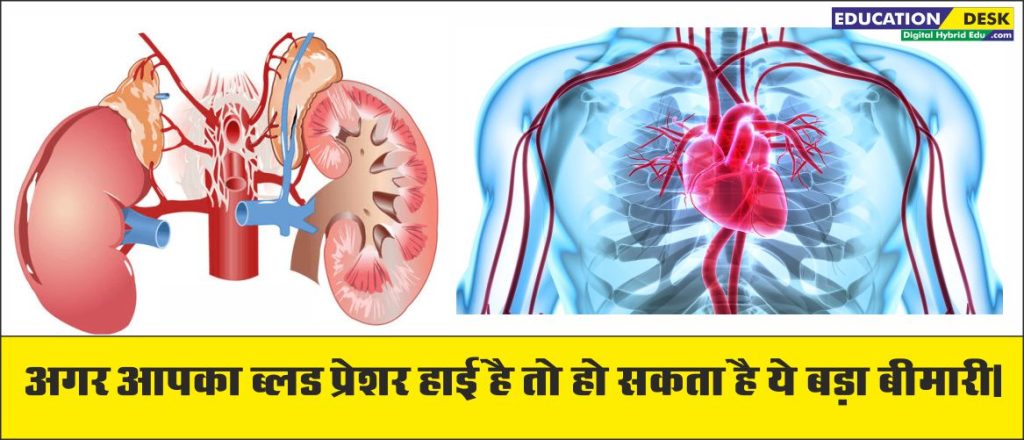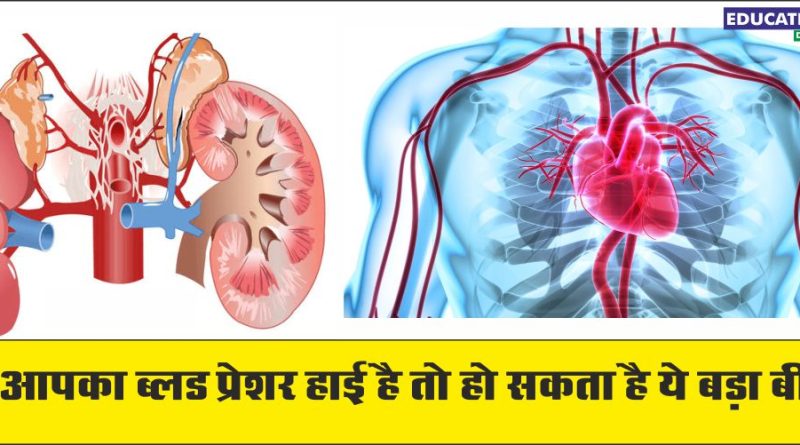Hypertension और kidney Disease में संबंध है ?
Hypertension और kidney Disease से क्या संबंध है ?
Is there a relation between hypertension and kidney disease?
Hypertension : Hypertension ( High Blood Pressure) is an abnormal elevation in blood pressure that occurs as a result of an altered regulation of blood pressure. Hypertension can cause damage to your kidneys and affect their ability to filter blood, which can lead to kidney failure.
Hypertension is a disease that affects the kidneys and has a high blood pressure. It can cause strokes, heart attacks and kidney failure. This may lead to end-stage renal disease (ESRD) in some people, requiring dialysis treatment for their remaining kidney functions.
High Blood Pressure is a major cause of kidney failure and it has been found that 90% of all hypertensive patients develop this condition. The kidneys control the body’s fluid balance, and when they are affected by high blood pressure it can lead to severe damage to each part of the organ.
Hypertension is the most common cause of kidney disease in Western countries. The kidney is responsible for filtering blood from the body and removing excess fluid, which can damage its delicate structure if it does not work properly.
Doctors can measure how much oxygen is being filtered out through urine tests. If your urine test shows that too much fluid is being collected by your kidneys (known as hypervolemia), you have high blood pressure.
Hypertension is defined as a systolic blood pressure greater than 140 mm Hg and/or diastolic blood pressure greater than 90 mm Hg. Blood pressure depends on cardiac output, total peripheral resistance, and vascular resistance.
Blood pressure consists of two forces: the normal perfusing pressure that causes the heart to contract and pump blood and the resistance caused by arterioles and other vessels.
Blood pressure is usually 120/80 mm Hg, but it can rise if the cardiac output increases more than the increase in total peripheral resistance.
If you have random, sustained episodes of high blood pressure, you may have primary hypertension. Primary hypertension is the result of an abnormality in the heart, kidneys or blood vessels.
High blood pressure, or hypertension, is a medical condition characterized by persistently elevated arterial blood pressure (BP) that presents a significant risk of future cardiovascular complications.

Why Increase High Blood Pressure dur to Kidney Disease
Kidney disease is a condition in which the kidneys do not function properly. This can lead to high blood pressure, and increased fluid retention (which causes swelling). ( Sodium Retention).
Also Read this Article
Hypertension Complication
Hypertension Complication is one of the most common complications of Kidney Disease. Hypertension complicates around 10% of people who have kidney disease and aggravates the condition by increasing blood pressure, which leads to damage of various organs in the body.
Kidney Disease Sign and Symptom
Kidney disease or kidney failure is a condition in which the kidneys do not filter toxins and fluid properly. This can lead to an accumulation of fluid in the body called edema, which causes swelling of the ankles, legs, wrist and fingers. Other symptoms of kidney failure may include: fever, fatigue and lethargy.
Kidneys Disease may cause pain in the back or stomach and vomiting. The urine is generally dark in color, with pale yellow casts. A child may have symptoms of distention in their abdomen if there is fluid in the abdomen. Kidneys Disease can lead to dehydration, shock and death if left untreated.
Kidney Disease Lab Test
Profile Test: KFT/RFT include Bellow test
BLOOD UREA
SERUM CREATININE
URIC ACID
CALCIUM
PHOSPHOROUS SERUM
BUN (Blood Urea Nitrogen )
BUN/CREATININE RATIO
UREA/CREATININE RATIO
SODIUM
POTASSIUM
CHLORIDE




Pingback: NEET 2024 Registration form and Exam Date » Digital Hybrid Education